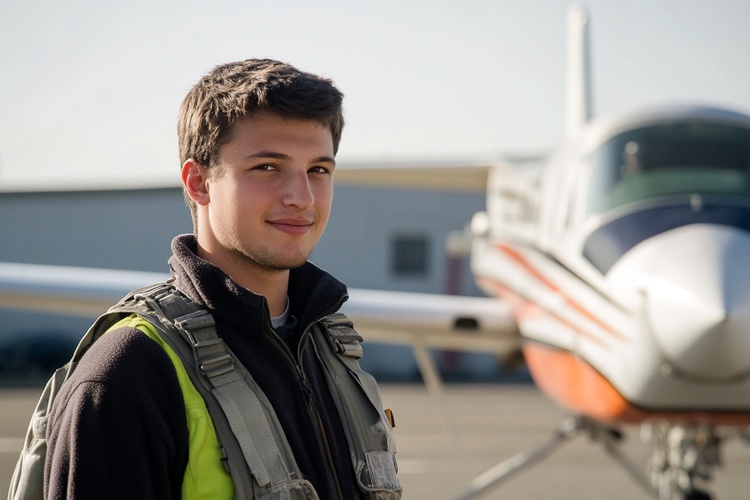A Day in the Life of an Aircraft Cleaning Crew
Behind every spotless aircraft lies the dedicated work of professional cleaning crews who ensure passenger safety and comfort. These specialized teams work around the clock, tackling everything from cabin sanitization to exterior washing, following strict aviation industry standards. Their meticulous attention to detail and adherence to safety protocols make air travel possible for millions of passengers worldwide.

Aircraft cleaning crews play a crucial role in aviation safety and passenger experience, working in fast-paced environments where precision and efficiency are paramount. These professionals maintain aircraft cleanliness standards that go far beyond typical cleaning requirements, ensuring both aesthetic appeal and compliance with health regulations.
What Are The Responsibilities of An Aircraft Cleaning Crew?
Aircraft cleaning crews handle comprehensive cleaning tasks that vary depending on flight schedules and aircraft types. Interior responsibilities include sanitizing passenger cabins, cleaning seats, windows, and overhead compartments, restocking supplies like safety cards and magazines, and ensuring galleys and lavatories meet hygiene standards. Crews also vacuum carpets, wipe down surfaces with approved cleaning agents, and remove all passenger debris.
Exterior cleaning involves washing aircraft fuselages, wings, and landing gear using specialized equipment and aviation-approved cleaning solutions. Teams inspect for damage while cleaning, reporting any concerns to maintenance personnel. During turnaround cleaning between flights, crews work under tight time constraints, typically completing their tasks within 30-45 minutes to maintain flight schedules.
What Skills Are Required for The Role?
Successful aircraft cleaning crew members possess specific technical and personal skills essential for aviation environments. Physical stamina is crucial, as the work involves climbing, reaching, lifting, and working in confined spaces for extended periods. Attention to detail ensures no area is overlooked, as cleanliness directly impacts passenger safety and satisfaction.
Team members must understand aviation safety protocols, including proper handling of cleaning chemicals, equipment operation, and emergency procedures. Time management skills are vital given the strict turnaround schedules airlines maintain. Many positions require security clearances and background checks due to airport access requirements.
Communication skills help crews coordinate effectively with ground staff, maintenance teams, and supervisors. Basic mechanical understanding assists in identifying potential aircraft issues during cleaning processes. Flexibility in working various shifts, including nights, weekends, and holidays, is typically required in this 24/7 industry.
Training and Certification Requirements
Aircraft cleaning crew positions typically require completion of specialized training programs covering aviation safety, proper cleaning procedures, and equipment handling. New employees undergo orientation sessions focusing on airport security protocols, hazardous material handling, and emergency response procedures.
Many employers provide on-the-job training paired with experienced crew members, allowing new hires to learn specific aircraft types and cleaning sequences. Some positions may require certifications in areas like confined space entry or hazardous waste handling, depending on the scope of responsibilities.
Working Conditions and Environment
Aircraft cleaning crews work in challenging environments that include exposure to weather conditions, aircraft fuel odors, and cleaning chemical fumes. Personal protective equipment is standard, including gloves, safety glasses, and respiratory protection when necessary. Work areas can be cramped, particularly in smaller aircraft or cargo holds.
Shift work is common, with crews often working during overnight hours when aircraft are grounded for maintenance and deep cleaning. Peak travel seasons may require extended hours and increased workloads. The fast-paced nature of airport operations means crews must adapt quickly to schedule changes and priority adjustments.
Career Advancement Opportunities
Experienced aircraft cleaning crew members can advance to supervisory roles, overseeing teams and coordinating cleaning schedules with airline operations. Some professionals transition into related aviation fields such as aircraft maintenance, ground operations, or airport management.
Specialization opportunities exist in areas like cargo aircraft cleaning, which involves different procedures and equipment compared to passenger aircraft. Cross-training in multiple aircraft types increases employment flexibility and advancement potential within aviation service companies.
Industry Outlook and Considerations
The aircraft cleaning industry continues evolving with enhanced health and safety requirements, particularly following global health concerns that elevated cleaning protocol standards. New technologies and cleaning methods are regularly introduced, requiring ongoing training and adaptation.
Sustainability initiatives in aviation are driving adoption of environmentally friendly cleaning products and water conservation practices. These changes create opportunities for crew members to develop expertise in green cleaning technologies and sustainable practices.
Aircraft cleaning crews provide essential services that directly impact aviation safety and passenger experience. Their work requires dedication, physical capability, and attention to detail in demanding environments. While challenging, these positions offer stable employment in the growing aviation industry with opportunities for skill development and career advancement.




